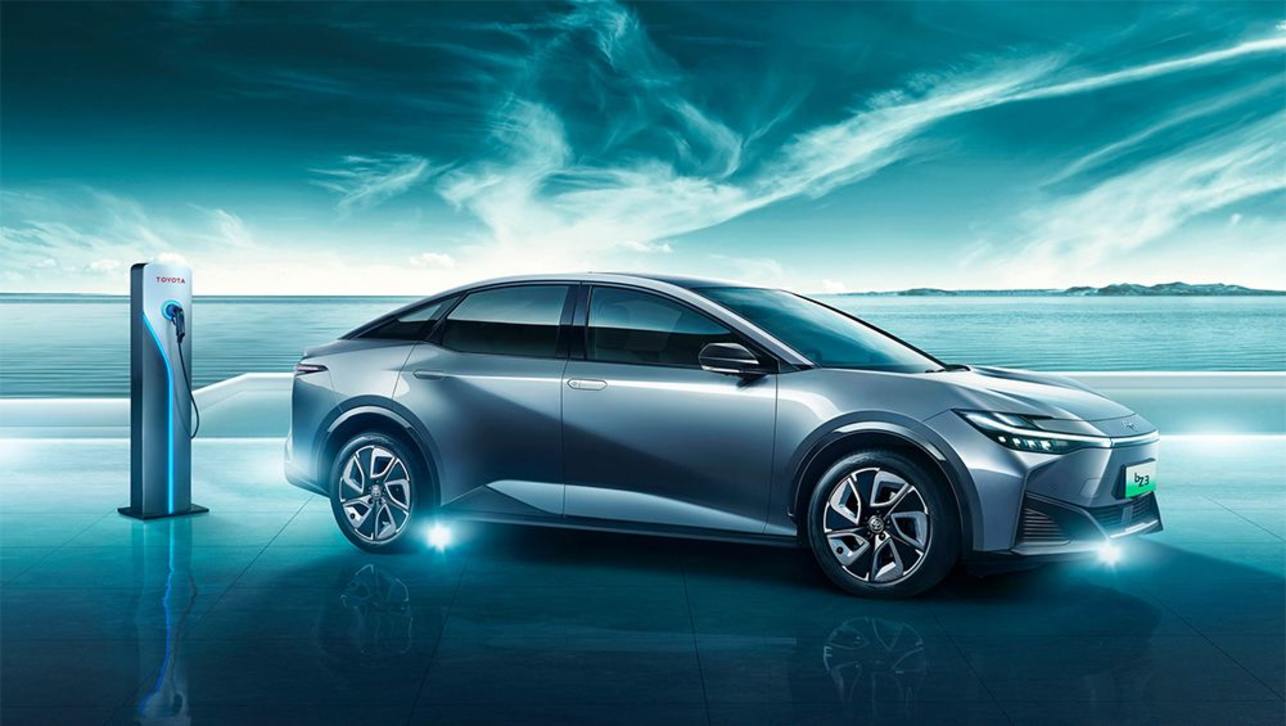If you can't beat them: Toyota to use BYD's plug-in hybrid tech for new models coming in the next three years - report - Car News
Toyota is taking its next steps towards electrification with plans to introducing more plug-in hybrids to build on its long-running back-catalogue of hybrids.
Toyota appears to be copying the homework of its Chinese joint venture partner
BYD and will use the brand’s established
plug-in hybrid (PHEV) technology for its future models according to insider reports on the ground.
Chinese outlet
Caijing quotes an insider who said Toyota is set to launch two or three new
plug-in hybrid cars over the next couple of years in China, using the technology developed by BYD for its DM-i PHEVs.
Read More About BYD
Toyota and BYD do have a 50/50 joint venture in China as of late last year, these models won’t be simply Toyota bodies on BYD platforms, or badge-engineered versions of existing cars.
"What is certain is that even if BYD's DM-i technology is adopted, Toyota will definitely carry out new polishing and tuning, and the driving experience of the final model will still be different," Caijing reports an insider as having revealed.
Toyota already has plug-in hybrid elsewhere in the world. A PHEV version of the second-gen
C-HR small SUV is available in Europe and the
RAV4 has a ‘Prime’ PHEV variant in North America. Not to mention Japanese market cars like the
Prius and
Crown PHEVs - but Toyota’s plug-ins are nowhere near as ubiquitous as the brand’s traditional hybrids.
The Prius is available as a PHEV overseas
For reference, Toyota has built up such a strong hybrid presence over the last couple of decades that if Toyota’s hybrid models split off to form their own brand, it would still be one of the world’s largest car brands.
Toyota sold 72,084 hybrid vehicles in Australia in 2023, almost as many cars as Hyundai or Kia sold overall. Kia sold 76,120 and Hyundai sold 75,183 cars, putting them in fourth and fifth place on the 2023 sales ladder respectively.
So while Toyota has been able to make hybrids accessible and convenient, the extra complexities of PHEVs seem to have been a barrier to the brand being willing to offer them unless a less cost restrictive way was found.
Enter the resources and development of BYD.
Toyota has already built a car with with BYD, the China-only bZ3 is a sedan style electric car which is built on Toyota’s e-TNGA platform and uses BYD’s ‘blade’ battery technology. It's unclear if future developments will follow a similar split for platform and drivetrain tech.
Toyota is set to host a conference call for investors to discuss its FY2024 financial results (Japan’s financial years run from April 1 to March 31 and are named for the calendar year in which they end), and it’s expected the brand will outline further details of its plans then.
Don’t expect a couple of plug-in models using BYD’s tech to be its only avenue for development, though it’s unclear if the models that are to use that PHEV tech will be for the global market or China only.
Chris Thompson
Journalist
Racing video games, car-spotting on road trips, and helping wash the family VL Calais Turbo as a kid were all early indicators that an interest in cars would stay present in Chris’ life, but loading up his 1990 VW Golf GTI Mk2 and moving from hometown Brisbane to work in automotive publishing in Melbourne ensured cars would be a constant. With a few years as MOTOR Magazine’s first digital journalist under his belt, followed by a stint as a staff journalist for Wheels Magazine, Chris’ career already speaks to a passion for anything with four wheels, especially the 1989 Mazda MX-5 he currently owns. From spending entire weeks dissecting the dynamic abilities of sports cars to weighing up the practical options for car buyers from all walks of life, Chris’ love for writing and talking about cars means if you’ve got a motoring question, he can give you an answer.



